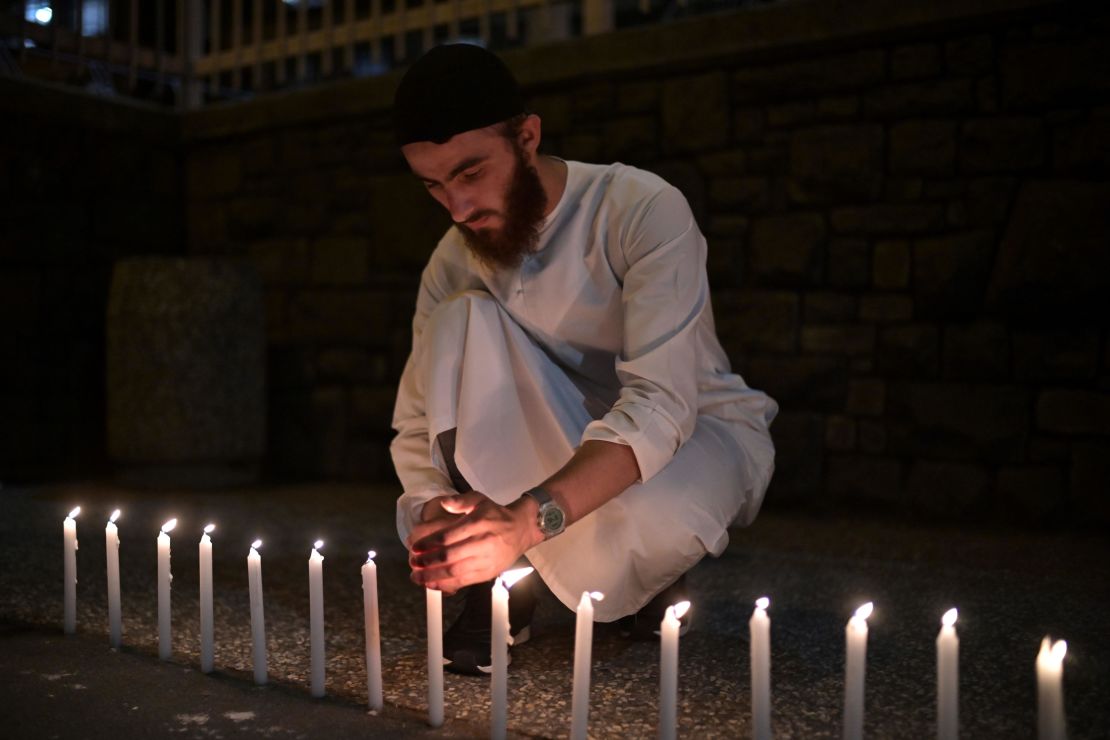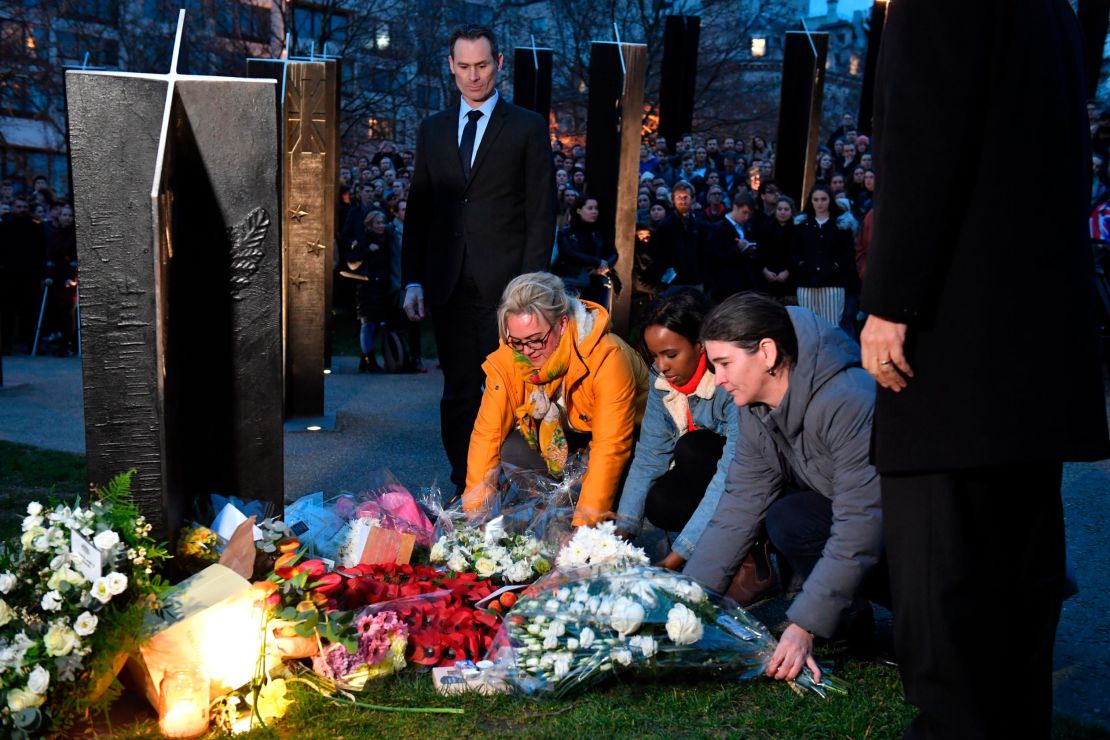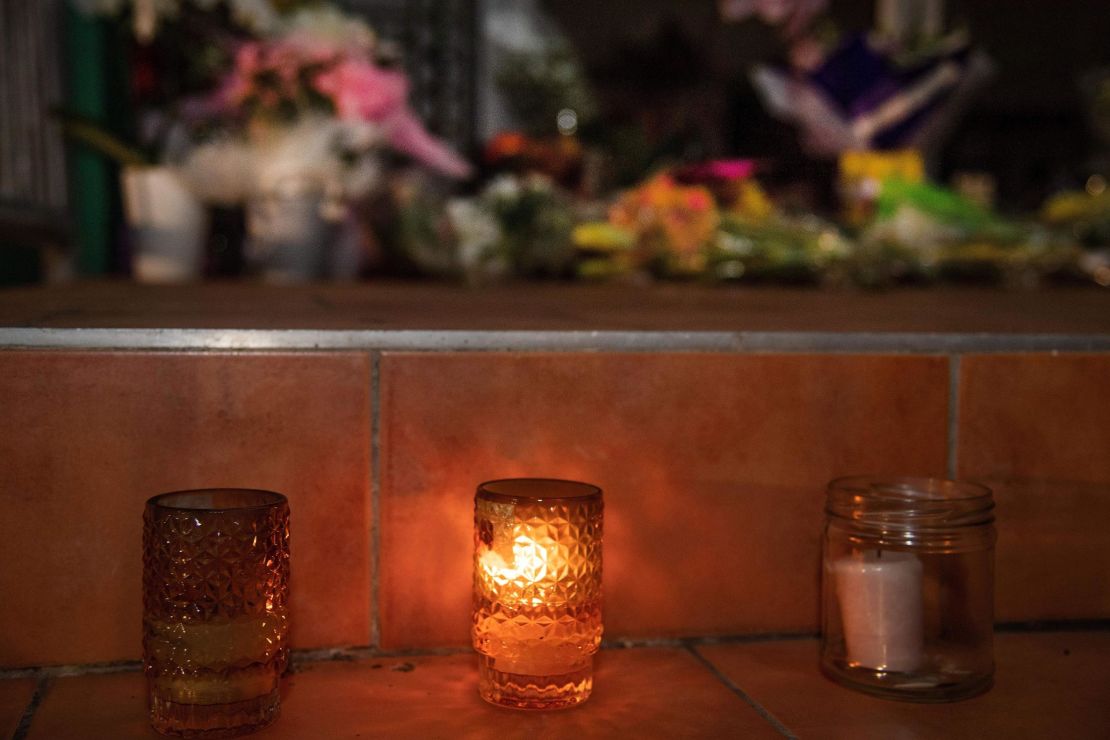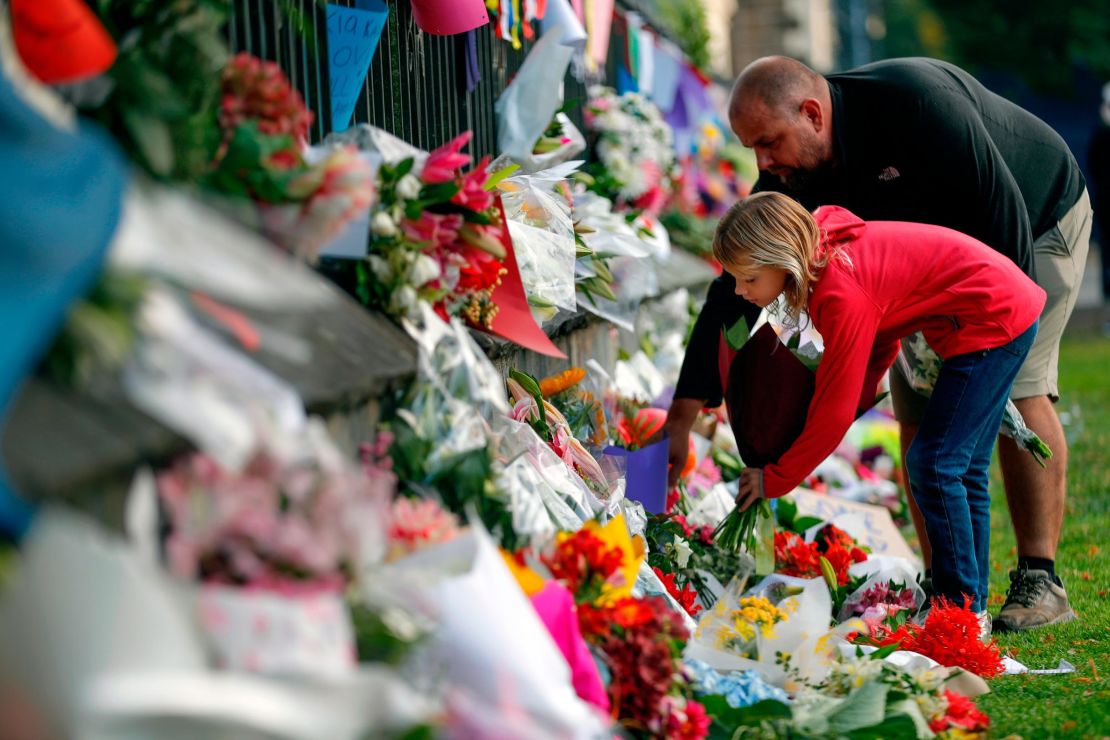Editor’s Note: Susannah Cullinane is a freelance writer for CNN who lives in Auckland. She previously worked for the Digital team in CNN’s London bureau, returning home to New Zealand in 2015.
I saw the first alerts of a “firearms incident” in Christchurch on Friday afternoon as I was helping hustle two 3-year-olds into the car for a playground visit.
Mass shootings have been rare in New Zealand, so I dismissively swiped away and assumed that it would turn out to be a false alarm. Gun ownership here may be comparatively high, but we do not have a gun-carrying culture; even police routinely patrol the streets without firearms.
A couple of hours later, surrounded by laughing children scrambling over playground equipment, I checked my phone and saw a missed call from CNN, a message asking about the Christchurch incident.
Stunned, I saw another alert of nine suspected dead. While the gunman had been opening fire on innocent worshipers, I had been posting video of my toddler learning how to tackle a bike track, and idly complaining to a friend about the heat.
As the magnitude of Friday’s attack unfolded, friends posted messages and images of solidarity to social media: A Kiwi bird crying; a black New Zealand flag.
One described being crushed at hearing the age of a little girl shot in her back: “… tonight I am checking and re-checking the news because I am hoping to hear that this child and the man who held her somehow made it through today’s horrific events,” she wrote.
Many shared the image of two women – one wearing a hijab – embracing. The drawing is captioned: “This is your home and you should have been safe here.”
Friends in Wellington who had posted images of their children at the climate-change march earlier on Friday updated their feeds with photos of the Kilbirnie Mosque, where their children had later laid flowers.
On Facebook, banners saying “New Zealand is their home. They. Are. Us” or “This is not who we are! Kia Kaha (be strong, in the indigenous language of Te Reo Maori) Christchurch” were pasted across family photos.
People across the country have also been coming together in larger groups to express unity. Vigils have been organized in cities including in Christchurch, Hamilton, Dunedin, Wellington and Auckland.
There are GoFundMe pages raising money for the victims. As of Monday afternoon local time, more than NZ $5.3 million (approximately $3.6 million US) had been donated to one of the appeals.
The Muslim community in New Zealand is small. The 2013 census recorded 46,149 people who affiliated themselves with Islam, out of a then-population of 4,242,048.

‘I feel like we’ve lost our innocence’
In my neighborhood, the community’s generosity is what has made me most aware of it.
My local Turkish café embraced surrounding residents and businesses in its first year of opening, the family who owns it inviting scores of us to Iftar during Ramadan. After fasting all day, they fed us and invited us to their tables to meet our neighbors. Last Ramadan they raised funds for the local Women’s Refuge, which shelters victims of domestic violence.
The day after the mosque attacks, I visited Hasan, the owner of the café – a family-oriented former professor.
The attack, Hasan told me, was not on the Muslim community, or the Turkish community but on New Zealand as a whole. Echoing New Zealand Prime Minister Jacinda Ardern’s comments the evening after the attack, he said New Zealand had been targeted because of our tolerance, that we needed to stand together and not let such violence divide us.
I found this incredibly generous but unsurprising given the actions Hasan and his family had already taken in their adopted home.
Nearby, a steady stream of people carried bouquets to the Ponsonby Mosque. One man knelt before the fence covering his face, wracked with sobs. A couple stood with arms around each other. Silent.
Elsewhere, flags flew at half-staff. A rainbow Pride flag at a café, the Royal New Zealand Yacht Squadron emblem and the New Zealand flag on the Auckland Harbour Bridge all flew low.
I dropped a friend at Auckland Airport so she could fly back to the South Island city of Nelson. She said there appeared to be no additional security on her flight; it is a relatively small regional route and her hand luggage wasn’t even put through a scanner.
I flew the same route recently, and a previous life in London made me pause when a woman asked to put her backpack “with a few laptops” under my son’s seat because she didn’t have the legroom. But my faith in New Zealand as a terror-free haven meant my hesitation was only fleeting.
It’s hard to believe this relaxed approach will continue. But we have – perhaps naively – seemed immune to the division and violence tearing apart so many communities elsewhere.
“I feel like we’ve lost our innocence,” my friend said. Her partner, employed by Nelson Hospital, described the readying of the intensive care unit to treat patients being transferred from Christchurch to make space for casualties from the attacks there.
We are not used to dealing with gunshot wounds here.

The head of the Canterbury District Health Board, David Meates, said Sunday that Christchurch Hospital was using seven acute operating rooms, when usually three would be in use.
Thirty-eight planned surgeries for Monday would be postponed to make space for victims of the mosque attacks, he said.
In a statement, Meates took the time to tell New Zealanders to look after themselves and others.
“Feeling on edge and upset right now is a completely normal reaction,” he wrote. “Be kind to one another – kindness is contagious.”
Such kindness is indeed coming from all directions.
Kiwis – the nickname for people from New Zealand – who are living overseas have sent messages of love and disbelief. One Seville-based friend who visited us Saturday described her phone constantly lighting up with condolence texts from Spain, some from people she barely knew.
People are grateful for the concern, bewildered that we are on its receiving end, awkward that such horror was unleashed on a community that we believed was safe.
This should not happen anywhere
It has been a surreal weekend. Life away from the direct impact of the attacks continues almost as usual. A birthday party Sunday morning, balloons, candles, small children dancing and tussling over toys. But also one guest who needed to ring a colleague about a workmate who had been missing since the attack.
On Friday, my son’s kindergarten gave me tips on looking after their pet guinea pig for the weekend. On Sunday it sent me an email outlining how to help preschoolers deal with trauma in light of Friday’s tragedy.
Life is normal and yet so very, very abnormal. It feels wrong to celebrate anything, but equally wrong to let a gunman take any more joy from the world than he has already.
This should not happen here. It should not happen anywhere.

The people I know are clinging to the hope that this is the work of one unhinged, delusional individual, that we haven’t just had our heads in the sand about a hatred and bigotry writhing beneath the surface.
But for me personally there is unease. I think back to the 1990s, when a family of Muslim Somalis I knew kept being turned down by landlords of houses they were trying to rent. I offered to make the calls for them, but they insisted I specify they were Somali refugees. Time and time again that information abruptly ended the conversation.
That was before 9/11 and ISIS.
In an opinion piece for state broadcaster Radio New Zealand, Anjum Rahman, spokeswoman for the Islamic Women’s Council of New Zealand, wrote Sunday that she was not surprised by the attack.
Rahman said the council had been actively lobbying the government for help and protection against rising discrimination in New Zealand for around five years, with little result.
At one meeting in 2018, council representatives “talked about the effects of discrimination, the issues in our communities, the rise of the alt-right and the increasing level of vitriol we were seeing online and in person,” she wrote.

Meantime, the NZ Herald newspaper carried an article on two sisters being abused and told to “go back to your country” while wearing hijabs in Auckland on Sunday – as New Zealand supposedly mourned as one nation.
Perhaps my belief that New Zealanders live in an inclusive, tolerant society is willful blindness. Perhaps it is merely due to the privilege I have experienced in not being the target of such vitriol.
That “privilege” should be everyone’s right. I hope it becomes so.




















